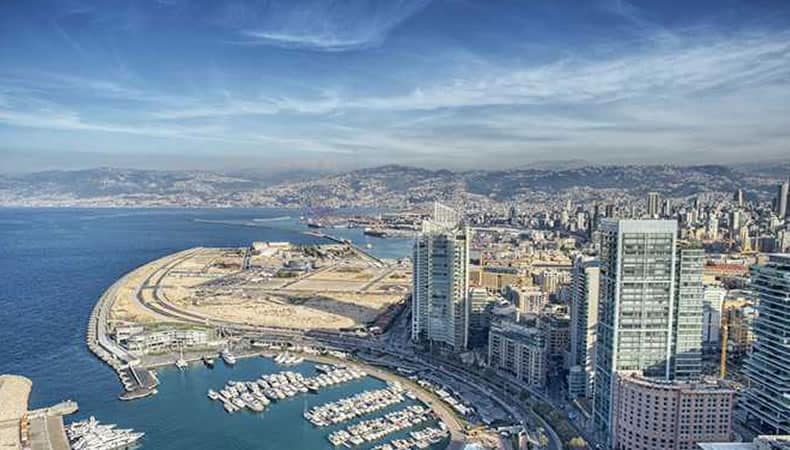Lebanon-Israel: A possible peace

Yesterday the Emirates and Bahrain, today Lebanon, tomorrow the Palestinians. This is the slogan of those who support peace in the Middle East with Israel. In fact, face-to-face talks have been held in recent days between Beirut and Tel Aviv with the facilitation of the United Nations and neighboring countries, to reach an agreement on maritime borders.
Lebanon and Israel seem willing to put an end to a ten-year dispute over maritime borders through diplomatic negotiations. That could be another piece of a broader form of regional stabilization that also includes the Abrahamic Agreements, the restart of relations signed between Israel, the United Arab Emirates United, and Bahrain.
The framework does not only concern the direct agreement with the Israelis, but a much broader according to the statement by the US Secretary of State, Mike Pompeo. He said that the deal between Beirut and Tel Aviv represents another “historic deal” that will offer the potential of more stability, security, and prosperity for the citizens of both nations. Washington is mediating between the Lebanese and the Israelis, of course.
Nothing more necessary for Lebanon, torn apart by the explosion at the port that uncovered the ills of the country. A patronizing political, economic and social system and continuous interference from outside, all linked to the confessional architecture of the state. Beirut is under a political impasse destined to continue for another month. The premier-designate, Mustafa Adib, renounced the post for “a mission government” received a few weeks ago, because he did not find in the Lebanese political class the will to overcome the divisions – and position rents linked to power – and form the executive.
If for Lebanon the agreement with Israel – with which it was technically at war from 1948-49 – represents another way to prove itself reliable in the eyes of the international community, for Tel Aviv, the issue is connected to two tactical-strategic issues.The first concerns Hezbollah, with which the Israelis have a dispute opened since the 2006 conflict, and which is the main threat to national security.
Hezbollah is linked to the Pasdaran, who armed it, exploiting the chaos of the Syrian war by demanding that those weapons be used against Tel Aviv sooner or later. Iran is instead the most strategic issue for Israel behind the agreement with Lebanon. A deal with Beirut could convey the dynamics of the country further away from Tehran.
Widening the picture means projecting the Israeli-Lebanese maritime agreement on a sensible dossier. That of the eastern Mediterranean, waters that bathe the Levant, shore on which the Greek-Turkish storm breaks. Israel has in that region some major gas reservoirs that cannot be exploited without the agreement with Beirut. Discoveries that led Tel Aviv to align itself with the Greek-Egyptian system in public opposition to Turkey.




